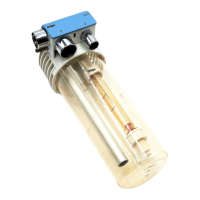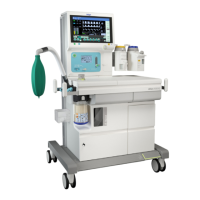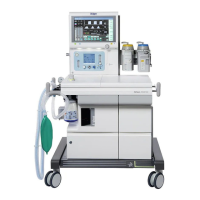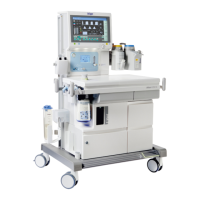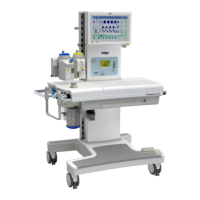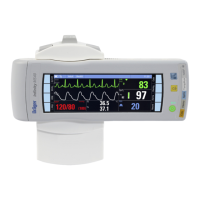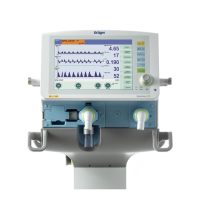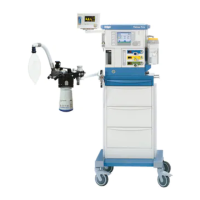Important Safety Information Chapter 1 - Introduction
Apollo Operator’s Manual 9
Part Number: 90 38 237, 6th edition
WARNING !
If it is suspected that fluids were spilled into the
device, remove the Apollo from service as soon
as is practical. Turn the power switch off, unplug
the main power cord, and contact the appropriate
trained service provider to evaluate the device
before placing it back into service.
WARNING !
Only configure the Apollo for optional accessory
mounting systems using one of the permitted
combinations listed in this manual (see
“Accessory Weight Limits” on page 11. Use of any
other configuration may create a tip hazard.
WARNING !
Care must be taken when connecting the patient.
Risk of strangulation!
WARNING !
Although designed to minimize the effects of
ambient radio-frequency interference, the Apollo
may be adversely affected by the operation of
electrosurgical equipment, defibrillators, or
shortwave/microwave diathermy equipment in the
vicinity.
WARNING !
To ensure patient safety:
• This device must be used by, or on the
order of, a physician.
• Constant attention by a qualified
professional is needed whenever a
patient is under anesthesia or
connected to a ventilator. Some
equipment malfunctions may pass
unnoticed in spite of the monitor
alarms.
• Always make sure that alarm limits are
set and alarms are active when
monitoring a patient. Do not rely
exclusively on the audible alarm
system for patient monitoring.
Adjusting the alarm volume to a low
level during patient monitoring can
jeopardize the patient.
• If the accuracy of any value display is
in doubt, first determine the patient’s
vital signs by alternate means before
verifying that the monitor is working
correctly.
• If the display loses patient data, it is
possible that active monitoring is not
being performed. Close patient
observation or alternate monitoring
devices should be used until monitor
function is restored.
CAUTION !
Apply the central brake when the anesthesia machine
is in use.
